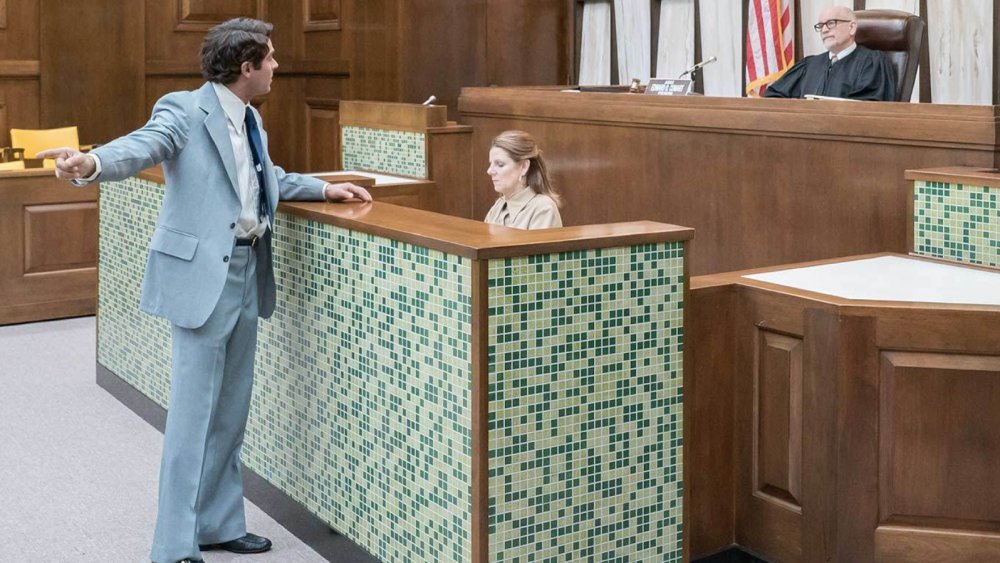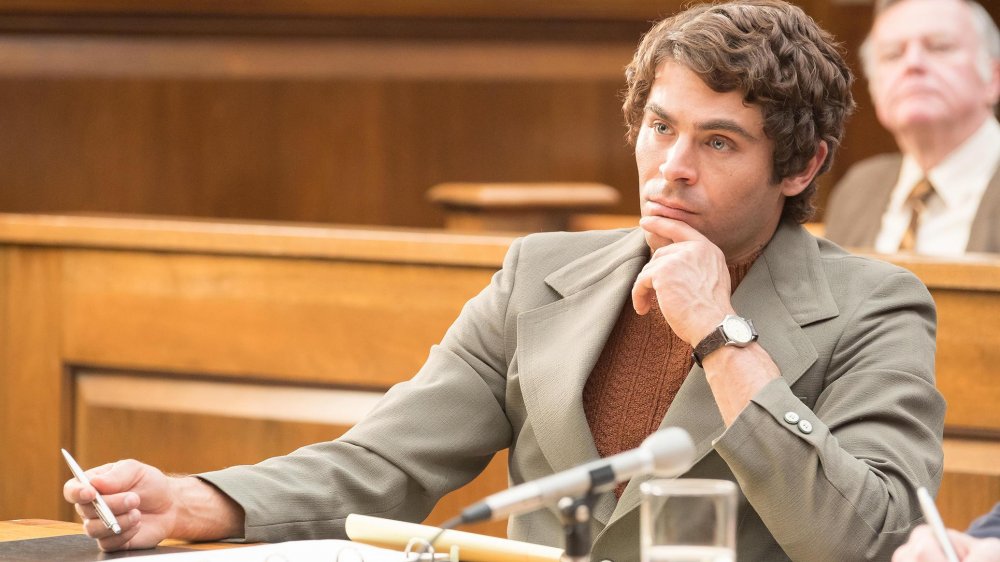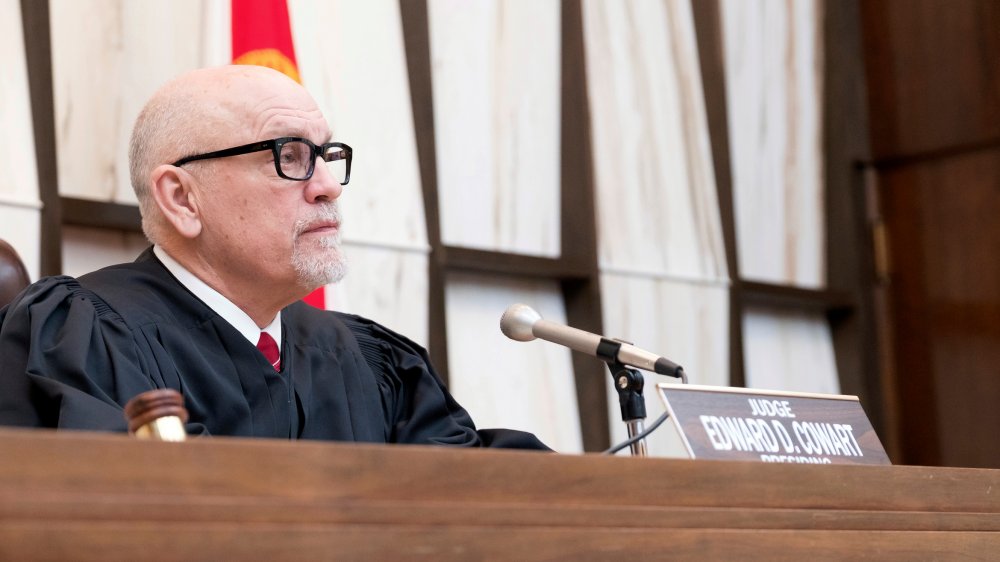How The Netflix Ted Bundy Movie Got The Trials Wrong
Ted Bundy is quite possibly the world's most charming serial killer. So charming, in fact, that Netflix gave him his own movie, starring Zac Efron. The streaming service released Extremely Wicked, Shockingly Evil and Vile in July 2019, and the world went haywire because humans are seriously weird, finding entertainment in the dark and unthinkable: serial killers, and mass murders. Cannibals fascinate us. The more dark and messed-up the story is, the more we eat it up.
Bundy's is the story of a man who confessed to 30 killings while charming individuals and the general public. His story is exciting. He escaped custody twice, and wooed the courtroom. Many movies "based on" real events tend to stretch the truth, turning non-fiction into mostly fictional works. It seems like this particular based-on-real-events film pretty accurately depicts the Bundy trials, though "pretty accurately" isn't the same as totally on point.
First, Extremely Wicked missed an entire trial. Netflix's movie didn't miss all of the events of that third trial, but they were forced to condense them into the movie's second trial. At an hour and 45 minutes in length, it's already a pretty long movie. Splitting trial two and trial three into separate occurrences would've dragged the movie on far too long and increased production costs.
The movie missed one whole trial
The movie still captures many of the real-life scenes that propel the narrative. For instance, this almost-real Bundy proposes to Carole Ann Boone while she's on the witness stand. Yes, it really happened, but not until the third trial. And, yes, she accepted his proposal. He might have been a serial killer, but he was a charming serial killer.
Since the last two of the Bundy trials were condensed into one in Netflix's Extremely Wicked, some things were cut. In the movie, the second trial was for both the Florida State University murders and the killing of Kimberly Leach. In real life, the second trial only covered the brutal rampage Bundy went on at Florida State. The third trial covered the murder of 12-year-old Kimberly Leach. Both of these crimes happened after Bundy escaped custody in Colorado.
The movie got his death sentence correct, but not how many times he was sentenced to death. In the second of the trials, Bundy received a death sentence for the murders of Levy and Bowman, the two Florida State students he killed. According to the Office of the Prosecuting Attorney of Clark County, Indiana, he was sentenced to death a second time in the third and final trial for murdering Leach. A second death sentence might sound like overkill (pun intended), but you can't be too careful with a serial killer who'd escaped custody twice already.
Malkovich didn't really need to ad lib
You probably assumed that an actor as odd, hilarious, and renowned as the great John Malkovich ad libbed a line or two. Malkovich seems to relish his character transformations no matter what role he's playing — everything from Space Force on Netflix to, well, himself, sort of, in Being John Malkovich. His work in Extremely Wicked, however, was based at least in part on the historical record. Playing Judge Edward D. Cowart just provided a perfect route for Malkovich's personality to play through without having to do much extra work. Why? Because Judge Cowart said some weird things during the actual Ted Bundy sentencing trial — the second one at least, since he wasn't the judge in the third.
USA Today says that most of what Malkovich said in his role as Cowart was actually taken from the trial transcripts. These lines include famous "what the heck" moments from the trial, such as when Cowart tells Bundy he would've made a "good lawyer" — Bundy represented himself — and that he would've enjoyed having Bundy practice in his courtroom. Granted, Cowart also told Bundy he was "extremely wicked, shockingly evil and vile" while delivering the death sentence. But not everything Cowart says in the movie courtroom was real, such as when Malkovich tells a cheering crowd of observers, "You're not here for the 'Flipper and Friends' show at SeaWorld." It fit the Cowart character well, though.


